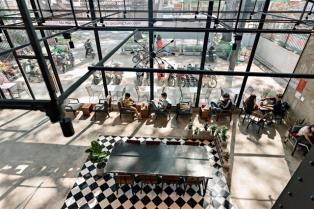Under Decree No.32/2022/ND-CP issued recently by the Government, the deadline for payable excise taxes for June-September for domestically manufactured or assembled cars is now November 20.

Decree No.32/2022/ND-CP issued recently by the Government, which extends the tax payment deadline for payable excise tax, will not directly affect domestic car prices, according to industry insiders.
Under the decree, the deadline for payable excise taxes for June-September for domestically manufactured or assembled cars is now November 20.
Nguyen Vinh Nam, an automotive expert, said the extension of the excise tax did not affect car prices but would solve the financial burden for domestic car assemblers.
The continuous extension of payable excise tax would help domestic automobile businesses solve immediate financial burdens and use finance sources to reinvest in factories and production lines to prepare for car assembling plans in the near future, said Nam.
He said that the current difficult situation after more than two years was affected by the pandemic and the shortage of semiconductor supply.
The extension of excise tax had partially influenced several automobile importers' finance plans. The move would directly affect the selling of imported vehicles.
Nam noted that in dealing with fierce competition, local car importers would also have adjusted their selling prices.
He said he believed the domestic automobile market would not have enough vehicles for sales until next year.
The auto expert believes that the domestic auto market will continue lacking cars for sale until next year. Currently, banks have restricted their loans in car purchasing and real estate. This would become a major barrier affecting local automobile consumption from now until the end of this year.
He said that if commercial banks and credit institutions conduct more open policies for car buyers, the sales volume would undoubtedly be higher. If not, car sales would slow down because of a lack of loans for buyers.
According to economist Dinh Trong Thinh of the Academy of Finance, the extension of payable excise tax will help reduce production costs while boosting a vibrant trading market and increasing sales.
However, this extension only lasts until the end of this year. It was a temporary "prescription" and had particular effectiveness. It was necessary to reschedule the payable excise tax to assist local businesses in the long run. He said that once the extended deadline expired, paying excise tax on domestic cars would revert to normal.
Pham Thanh Le, an auto expert from the Otofun website, said the extension of the excise tax did not directly affect car prices as it was temporary. He noted that the extension would help businesses and automakers have more financial resources to improve and upgrade their production lines.
"The extension does not affect the State budget collection," he said explaining that the extension is similar to every household expense.
Le took an example, in late June 2022, a household had to pay an amount of tax. However, the tax authority decided to extend tax payments for the household until July 2022. By doing so, the household could use the money for other purposes. The household would have to pay taxes in August as required by the tax authority.
Vinh Nam said the extension of excise tax would not affect the State budget collection, noting that the move was a rescheduled tax payment deadline only.
Industry insiders affirmed that Decree No.32 would help local businesses to maintain finance sources for production recovery after more than two years of being affected by the COVID-19 pandemic.
Domestic car enterprises face difficulties due to the lack of imported components and chips, which significantly affects production and assembly. Many best-selling models on the market have a "sold out" status. Buyers also must spend tens or hundreds of millions of dong to get the cars.
The Decree extends the payment deadline for excise tax in June, July, August and September 2022 for domestically manufactured and assembled cars. The extended deadline is from the end of the payment deadline of the excise tax as per regulations of the Law on Tax administration to the end of November 20, 2022.
The deadline for applying for an extension is November 20, 2022.
The country's top tax authority has requested local tax departments to extend the payment deadline for these cars in accordance with Decree 32 to remove difficulties for production and support those affected by the pandemic.
The Ministry of Finance cites Article 8 of Law 03/2022/QH15 as saying that the excise tax on domestic electrically-operated cars of nine seats or fewer, cars of between 10 seats and under 16 seats, cars for both passenger and cargo transportation, and the cars of between 16 seats and under 25 seats will be revised down to 3 per cent, 2 per cent, 2 per cent and 1 per cent, respectively.
The ministry expects that the volume of consumed electrically-operated cars will increase and replace the prevalence of petrol-powered vehicles.
On the basis of business production and payment of exercise tax in the whole year by domestic automakers, the average tax payable to the State budget is around VND2.4 to VND2.8 trillion.
If implementing Law 03, the revenue from the tax is expected to reduce by about VND2-3 trillion, an average of VND170-250 billion per month. — VNS





